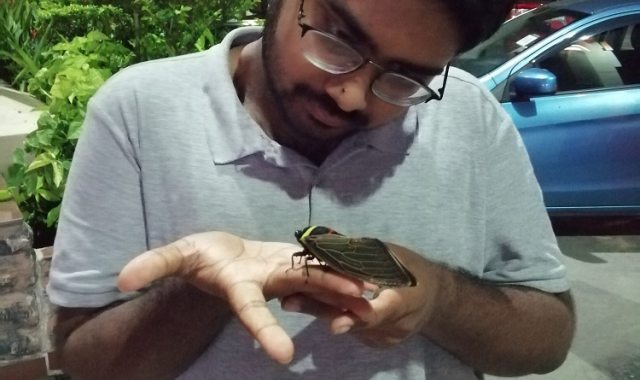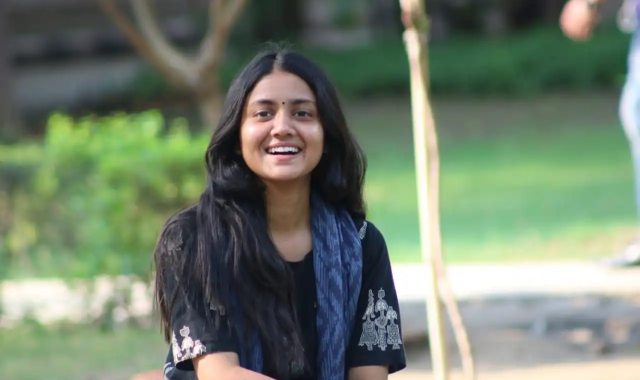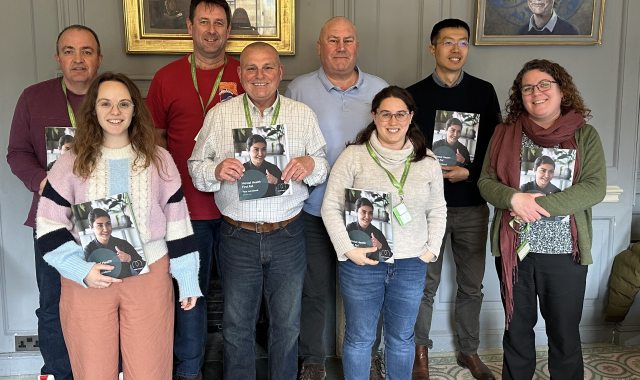An interdisciplinary love of languages
- 02 October 2023
- 4 minutes
“The best applications we get are from applicants who have found something they’re deeply interested in, have read about it, thought about it, then read around it. They allow themselves to be led in different directions, perhaps outside the syllabus, and they’re not afraid to admit when they find an idea difficult or confusing.”
Dr Geoffrey Maguire is Gonville & Caius College’s Fellow in Spanish, whose comments on applicants to the University of Cambridge are equally valid for any subject, or any college. That is the beauty of Modern & Medieval Languages, a subject which is truly interdisciplinary and encourages students to follow their interests and academic passions, whatever they might be.
“We’re not looking for one type of student – some are excellent linguists and come with a deep knowledge of how language works, while others are more interested in the cultural side, read widely and think critically about texts, poetry, film,” Geoffrey adds.
Reading MML at Caius offers opportunities in many academic directions, as Geoffrey’s own teaching and research interests show.
“My own work straddles two worlds,” he says.
“I’m based in the Centre of Latin American Studies, where I research how Latin America as a region is represented through literature, film and visual art. But I’m also interested in sexuality studies and queer theory, and a lot of my teaching and research engages with these fields too.”
The interdisciplinary nature of MML includes students who learn an additional language ab initio (from scratch) in their first year. The expectation is that fluency will result ahead of the Year Abroad in third year, which opens up a range of opportunities.
Geoffrey adds: “It is one of the many things which sets the Cambridge course apart. The intense language learning in the first year means that in subsequent years students can focus more on literature, film, culture, history, linguistics, even the sociology of their chosen languages.
“We have final-year courses on film, poetry, history and interdisciplinary approaches to the body, covering the medieval period to the present day…”
There are many others. Geoffrey teaches film and literature, including on the MPhil courses, which is far removed from his first job following his undergraduate degree at the University of St Andrews. Geoffrey was a primary school teacher in Spain for two years, before deciding to return to university, undertaking a PhD at the University of Cambridge after a recommendation from a professor at St Andrews.
The first six months of his PhD saw his topic change, from exploring “an obscure 1970s poet from Argentina that no-one was interested in” to cultural representations of the last two decades of politics in Argentina.
Geoffrey also sits on the management team of the lgbtQ+@Cam programme, which promotes research, outreach and network building related to queer, trans and sexuality studies across the University.
“It’s really rewarding. You get to discover brilliant research in LGBTQ+ studies across the University and create connections between people and departments. It’s amazing to see what happens intellectually when we look at the same problem from different angles and ask different disciplinary questions,” he says.
Geoffrey is on sabbatical leave for the academic year 2023-24, during which time he will hold a CRASSH Early Career Fellowship in Cambridge and the Hunt-Simes Visiting Chair of Sexuality Studies at the University of Sydney. In Sydney he will deliver a series of lectures, workshops and seminars to build interdisciplinary collaborations that he hopes to maintain on his return to Cambridge.
He adds: “The University of Sydney has impressive strengths in environmental studies and in sexuality and gender studies. I’m excited to work with academics in these fields to think through how we might bring frameworks from sexuality studies to bear on contemporary environmental issues.
“The project is called Un/Natural and it traces the relationship between queer communities and the idea of the natural. Members of the LGBTQ+ community have historically been branded – even criminalised – as ‘unnatural’, accused of challenging the traditional nuclear family or, particularly during the HIV/AIDS crisis, of posing a threat to society more generally.
“Yet queerness is everywhere in the natural world. There are countless examples of homosexuality in animals, and in some species homosexual sex is more common than heterosexual sex. In other species, transsexualism is the norm and animals change sex depending on their stage of life or even the time of year…
“We need to think seriously about what the queerness of the natural world tells us about the normative, restrictive ways we think about sex, sexuality and gender as human beings.”



